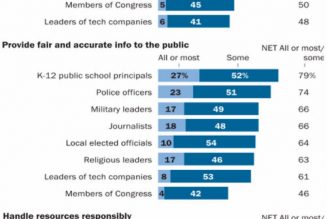
A lot of people are either unnerved or angry, or a combination of both, by the thought that the National Security Agency (the NSA) has evidently conducted extensive surveillance of American citizens, whether it be of their telephone calls, texts, e-mails, web-searches, or daily conversations. The ultimate outcome of it all, at least from a legal point of view, has yet to be determined.
I find it intriguing that people are so concerned about the government knowing what in actual fact is very little about their lives but typically ignore altogether the fact that God knows everything, literally and exhaustively, everything about them.
Does your knowledge of God’s knowledge of you frighten you? Or do you find in it comfort and security and strength? David, King of Israel, celebrated God’s knowledge of him. He was strengthened and reassured by the fact that no thought, desire, plan, or purpose escaped the eye of his heavenly Father.
Psalm 139:1-6 is a glorious celebration of the multi-faceted splendor of God and the imminently practical implications that it bears for you and me. But not everyone likes the idea of being utterly, exhaustively, and intimately known. They would prefer to keep the secrets of their soul hidden from view. That God might know them in such pervasive detail is unsettling, to say the least. David, on the other hand, revels in this truth. As we’ll note momentarily, such knowledge, he declares, “is too wonderful for me; it is high; I cannot attain it” (v. 6).
Let’s look more closely at the extent of God’s knowledge of David (and of us) and the joy it ought to evoke in our hearts.
In the opening statement, “O Lord, you have searched me and known me” (v. 1), “searching” is obviously an anthropomorphic image, for “God knows all things naturally and as a matter of course, and not by any effort on his part. Searching ordinarily implies a measure of ignorance which is removed by observation; of course this is not the case with the Lord; but the meaning of the Psalmist is, that the Lord knows us thoroughly as if he had examined us minutely, and had pried into the most secret corners of our being” (Spurgeon, Treasury of David, III:B:258).
If it were the case that God was truly ignorant of David prior to his searching of his soul, this would mean that God is not omniscient at all, that he lacks not only knowledge of the future but of the present state of the human heart as well (something not even the most ardent Open Theist is willing to admit).
In order to demonstrate that God also has exhaustive knowledge of every position and movement, David employs a figure of speech called merism, in which polar opposites are used to indicate the totality of all generically related acts, events, localities, and so on. Thus: “You know when I sit down and when I rise up” (v. 2a). His choice of words is designed to encompass the totality of his life’s activities. God’s knowledge extends to every conceivable physical state, gesture, exercise, posture and pursuit. “When I am active and when I am passive and everything in between . . . You know it all!” David leaves nothing to guesswork: “My most common and casual acts, my most necessary and trivial movements, are all seen by you. Nothing escapes your eye!”
Indeed, God knows every mental impulse that governs and regulates such outward behavior. We read in v. 2b that God “discerns” our “thoughts from afar.” Every emotion, feeling, idea, thought, conception, resolve, aim, doubt, motive, perplexity, and anxious moment is exposed before God like an open book.
And all this “from afar” (v. 2b). Some take this as a reference to God’s transcendence, the point being that the distance between heaven and earth by which men vainly imagine God’s knowledge to be circumscribed (limited, bounded) offers no obstacle. Though God be infinitely high and we be so very, very low, he knows us thoroughly.
Others, such as my friend Ray Ortlund, read this verse in the light of vv. 7-12 which focus on God’s omnipresence. Thus he sees in it a temporal meaning: “In verses 7-12, David makes the point that God is always present with him. The distance in view in verse 2, then, must be not spatial but temporal, as this word is also used in Isaiah 22:11, 25:1 and 37:26. Long before any impulse wells up from within David’s psyche, long before David himself knows what his next mood or feeling will be, long before he knows where his train of thought will eventually lead, God perceives it all” (Raymond C. Ortlund Jr., “The Sovereignty of God: Case Studies in the Old Testament,” in Still Sovereign, edited by Thomas R. Schreiner and Bruce A. Ware [Grand Rapids: Baker, 2000], 29).
What follows serves only to confirm this truth: “you search out my path and my lying down and are acquainted with all my ways” (v. 3), that is to say, every step, every movement, every journey is beneath your gaze.
Should there be any lingering doubts, verse 4 utterly dispels them: “Even before a word is on my tongue, behold, O Lord, you know it altogether.” Two things are important to note. First, God has knowledge of our words “before” they are spoken. Second, God has exhaustive and comprehensive knowledge of our words. He knows them “altogether” or “completely.” Spurgeon was surely right when he said:
“Though my thought be invisible to the sight, though as yet I be not myself cognizant of the shape it is assuming, yet thou hast it under thy consideration, and thou perceivest its nature, its source, its drift, its result. Never dost thou misjudge or wrongly interpret me; my inmost thought is perfectly understood by thine impartial mind. Though thou shouldest give but a glance at my heart, and see me as one sees a passing meteor moving afar, yet thou wouldst by that glimpse sum up all the meanings of my soul, so transparent is everything to thy piercing glance” (III:B:259).
How often have you blurted out, perhaps at an especially ill-advised moment, some word that you had no idea was forthcoming? Of this I can assure you: God wasn’t in the least surprised or caught off guard. You and I may not always know what we will say, but God does.
Quite simply, God surrounds us. His knowledge has us hemmed in (v. 5). We are enveloped by his loving care. “We cannot turn back and so escape him, for he is behind; we cannot go forward and outmarch him, for he is before. He not only beholds us, but he besets us” (ibid.).
How does all this affect you? Does it elicit fear in your soul? Anxiety? Anger? For David, God’s exhaustive and all-encompassing knowledge of him is simply “too wonderful” (v. 6a). He lacks the necessary faculties of mind, spirit and affection to fully grasp what is at stake. It is too deep, too high, too wide, too expansive and broad for his finite mind to entertain. Such knowledge not only surpasses his comprehension but his imagination as well. “It is high; I cannot attain it” (v. 6b). Again, I yield to Spurgeon:
“Mount as I may, this truth is too lofty for my mind. It seems to be always above me, even when I soar into the loftiest regions of spiritual thought. Is it not so with every attribute of God? Can we attain to any idea of his power, his wisdom, his holiness? Our mind has no line with which to measure the Infinite. Do we therefore question? Say, rather, that we therefore believe and adore. We are not surprised that the Most Glorious God should in his knowledge be high above all the knowledge to which we can attain: it must of necessity be so, since we are such poor limited beings; and when we stand a-tip-toe we cannot reach to the lowest step of the throne of the Eternal” (III:B:260).
What is our response when we think of God’s knowledge of the secrets of our hearts? What impact does this have on holiness?
“Can a man’s conscience easily and delightfully swallow that which he is sensible falls under the cognizance of God, when it is hateful to the eye of his holiness, and renders the actor odious to him? . . . Temptations have no encouragement to come near him that is constantly armed with the thoughts that his sin is booked in God’s omniscience” (Stephen Charnock, 258).
What is even more glorious is that this doctrine which makes us fearful of sin is also the foundation of comfort and assurance. If God is omniscient, then he knows the worst about us, but loves us notwithstanding! The apostle John writes: “This then is how we know that we belong to the truth, and how we set our hearts at rest in his presence whenever our hearts condemn us. For God is greater than our hearts and he knows everything” (1 John 3:19-20).
Let’s face it, when it comes to surveillance and knowledge, the NSA’s got nothing on God!
[Adapted in part from my book, More Precious than Gold: 50 Daily Meditations on the Psalms (Crossway).]
Sam Storms serves as Lead Pastor for Preaching and Vision at Bridgeway Church, Oklahoma City, OK and as President of Enjoying God Ministries. This article orignially appeared here at his blog, www.SamStorms.com. Used by permission.










